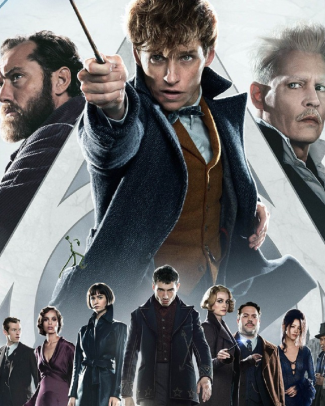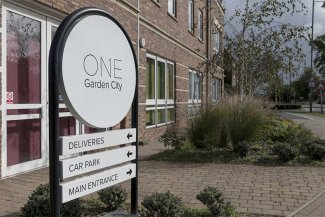Some films, books, narratives grow on you. Others – and here I emphatically include the Harry Potter-verse – have the opposite effect. The more familiar I become with the sprawling mess that is J K Rowling's grand oeuvre, the less tolerant I am of it.
The Potter-verse: controversial and messy
So it is with The Crimes of Grindelwald, the latest, the tenth in this overworked series. For Potter is to magic what 50 Shades is to a certain sexuality: the ultimate in tourism; a world, a way of life viewed from the distance of a five-star air-conditioned hotel. Visited. But never mucked in.
Not even, my suspicion grows, much liked. For it is clear, from the evolution of Potter, that what started as an amusing trope – what would happen if we took the trad English boarding school novel, a pastiche of Bunter and Jennings and Mallory Towers, mixed it up into one sub-Eton Mess, and added magic? - has expanded beyond recognition into something that claims social relevance, yet forever beaches itself on the limits of Rowling's sensitivities.
Since i'm reviewing the films and not the concept, I shall let go Rowling's subpar world-building, the inconsistencies and the revisionism, her constant re-writing of both narrative and rules. I won't even, with her insensitivity over minority issues, from Dumbledore's alleged gayness to the appropriation of cultural tropes by way of Nagini. And of course I won't mention the controversy around the casting of Johnny Depp in the role of Grindelwald.
Great chases, big effects
So let's stick with the film, which gives us more of the same old. On screen is a world of magic, seamlessly created. Grand chases and massive effects. It begins some months after Fantastic Beasts I.
Grindelwald (Johnny Depp) is under lock and key in America about to be transferred to Europe to answer for his crimes there. But – no spoilers here, as this occurs in the opening scenes – daring escape, and Grindelwald is loose.
Cut to England where Newt Scamander (Eddie Redmayne) is having issues with the Ministry of Magic. They, with all the subtlety of an elephant in a small china shop, would like him to join up in the fight against Grindelwald. To take sides and help them to hunt down Credence Barebone (Ezra Miller), the magical prodigy last thought to have been killed at the end of the previous film: but this, Newt explains to brother Theseus (Callum Turner) is not a thing he does.
In which case, the Ministry declares, you are a bad person and you shall not travel abroad. Then it's off to Hogwarts for nostalgia and a rendez-vous with a youthful Albus Dumbledore (Jude Law) who wants Newt to magic over to Paris, there to find Credence before Grindelwald can.
Why? Well, it turns out that the only magician considered capable of taking on Grindelwald is Dumbledore. And the only magician possibly able to take down Dumbledore is Credence.
No. Definitely can't, asserts Newt. Two minutes later, learning that Tina Goldstein, his unrequited New York passion, is headed for France, it's change of mind and everyone (except Dumbledore) off to Paris. That's the old gang, first encountered in New York, including portly baker Jacob (Dan Fogler) and Queenie (Alison Sudol) and new gang, Leta Lestrange (Zoë Kravitz) and Nagini (Claudia Kim).
The scene is set for a variety of set pieces around will-they-won't-they find Credence, discover who he really is (an answer is supplied at film's end, but is this THE answer or mere misdirection?), plus relationships unfulfilled for reasons of misunderstanding or sudden all-too-predictable death.
Some things should not be done too well
“C’est magnifique, mais ce n’est pas...” aimable, as they never quite said. What I am finding more and more dislikeable about the Potter-verse is that it is, in entirety, dark and oppressive. What we are meant to take away from this film is: Grindelwald evil, the wizarding world's Hitler look-alike, bad (Aryan) boy preaching race hate and extermination vs the Goodies.
Except I have two issues with this. The first, that the wizarding world appears to be little better than Grindelwald himself: cruel, thoughtless, arrogant, and that includes this latest portrayal of Dumbledore. Controversial in the main Potter narrative: here, out and out dodgy.
And second, Rowling, with her very obvious limitations over minority issues, is not a good person to go clumping around what is well on its way to being a serious allegory for the Nazi Final Solution.
Perhaps I should add a third issue, and that is Grindelwald/Depp's magnificent awful speech to assembled wizardry, making the case for his philosophy. The only problem is, this speech is far too well done. Were I a modern day Nazi looking for inspiration, i'd be cutting and pasting this scene to all and sundry. That is a big problem: when you look into the abyss, the abyss looks back.
And when you seek to undermine the darkest of dark ideas from within you may find yourself going places you never intended.
In the end, a well-made film, an entertaining film, if perhaps a little samey. But also a film that embraces the darkness at its heart just a little too well.
Three and a half stars.


